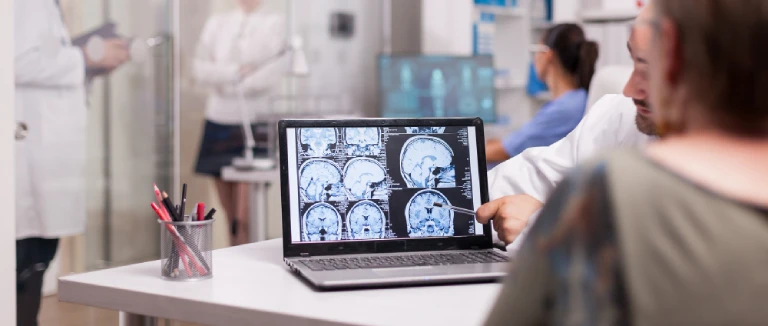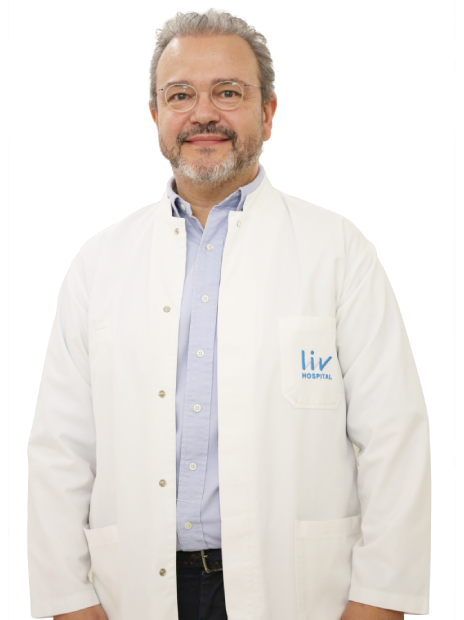Huntington’s Disease: Causes, Symptoms, and Treatment Options
Few ailments are as baffling and destructive as Huntington's disease in the broad world of neurological disorders. As it attacks the foundation of human cognition, motor function, and emotional stability, this mysterious condition, also known as HD, poses significant difficulties for sufferers and their loved ones. The subject of Huntington's disease is vital since it presents challenging scientific problems to those working to understand its causes and create cures.
Huntington's disease has been the focus of myths, misunderstandings, and disinformation throughout history, which has caused stigmatization and dread among people unfamiliar with its characteristics. Therefore, it becomes more and more critical for us to shed light on this enigmatic illness, clear up common misconceptions, and promote a deeper awareness of the nuances of the disease.

What Is Huntington's Disease?
The neurological condition known as Huntington's disease (HD), commonly referred to as Huntington's chorea, is a rare genetic condition that worsens over time. Motor abnormalities, cognitive decline, and mental issues comprise its symptoms. Since Dr. George Huntington's original description of the illness in 1872, medical research has made significant progress in comprehending its underlying origins and symptoms.
The huntingtin gene (HTT), which is located in chromosome 4, is primarily responsible for the development of Huntington's disease. The CAG trinucleotide repeat, a particular DNA region, is abnormally repeated due to this genetic mutation. A person's HTT gene's CAG repeat count determines how early and severe their symptoms will likely be.
Although the beginning can range from early childhood to late adulthood, symptoms typically manifest between 30 and 50 in mid-adulthood.
Huntington Disease Symptoms
Huntington's disease (HD) is characterized by symptoms that gradually worsen over time. These symptoms fall into three main categories: motor, cognitive, and psychiatric. While the specific symptoms and their severity can vary from person to person, they generally progress slowly. Most people with HD begin to notice symptoms between ages 30 and 50, though onset can occur earlier or later.

Motor Issues
- Chorea: Jerky, uncontrollable, and writhing are defining motor signs of HD. These motions frequently cause twitching or fidgeting that is out of control on the face, arms, and legs.
- Rigidity: People with HD may have muscle rigidity, which makes movement difficult and slow.
- Impaired Balance and Coordination: HD can make it challenging to stay balanced, leading to a stumbling stride and a higher risk of falling.
- Abnormal eye movement: Eye movements can become abnormal or disorganized, which might interfere with visual tracking.
- Dysarthria: Slurred or imprecise speech brought on by difficulty in speech articulation.
- Cognitive Symptoms: HD impairs cognitive processes, resulting in memory loss, difficulty learning new things, and difficulty solving problems.
- Impaired judgement: People with HD may struggle to reason and have problems making decisions.
- Lack of Concentration: Common cognitive symptoms include a shorter attention span and difficulty focusing on tasks.
Mental Health Symptoms
Mental health symptoms of HD are:
- Depression: Sadness, hopelessness, and a loss of interest in once-enjoyed activities are frequent symptoms of HD.
- Anxiety: Excessive worry, agitation, and tension are common mental signs of HD.
- Aggression and Irritability: HD can cause an increase in irritability and angry outbursts.
- Social Withdrawal: People with HD may become less social due to cognitive and behavioral impairments.
- Psychosis: In a few instances, HD can result in psychotic symptoms such as delusions and hallucinations.
People with HD may need assistance with daily tasks as the condition worsens, and their capacity for self-care and communication may deteriorate. Access to comprehensive medical care, support services, and emotional support is crucial to manage the difficulties brought on by the condition successfully.
You can contact the medical experts in Istanbul today to know more!
Huntington's Disease Treatments
Hungtinton's disease treatment programs are frequently explicitly created for each patient's needs and may incorporate a variety of the following strategies:
Medications:
- General: Medications such as, tetrabenazine and deutetrabenazine, are authorized to treat chorea in HD patients. By controlling specific brain chemicals, they assist in reducing chorea and uncontrollable movements.
- Antipsychotic drugs: Antipsychotic drugs may be prescribed to treat mental health issues like psychosis, agitation, and violence.
- Antidepressants and anxiety medications: Antidepressants and anxiety medications are suggested by doctors to treat anxiety and mood disorders caused by HD.
- Medical Exercise: Enhancing mobility, coordination, and balance is all possible with physical therapy which also helps in preserving muscle flexibility and strength.

Language Therapy:
- Speech therapists: Speech therapists help people with dysarthria (speech impairments) communicate and swallow more effectively.
- Occupational therapy: Occupational therapy aims to help patients preserve their independence and adjust to any functional changes HD brings.
- Counseling and psychotherapy: Given that HD can have a substantial emotional impact, psychologists or counselors can offer the affected person and their family emotional support and coping mechanisms.
Advisory Groups:
Being a part of support groups with other HD sufferers helps foster a sense of camaraderie, mutual understanding, and support:
- Hospice Care: Palliative care may become a crucial component of treatment as HD worsens. Palliative care aims to reduce suffering, and control symptoms.
- Research-based and experimental therapies: Potential HD treatments in Istanbul, such as gene therapies and other experimental interventions, are continuously being investigated in clinical trials and research investigations. Participating in these trials could provide you access to cutting-edge treatments and advanced science.
You can consult with healthcare specialists in Turkey today to make an appointment.
Liv Hospital For Huntington's Disease
Liv Hospital is a top choice for international patients seeking advanced medical care in Turkey. With seven modern hospitals across the country, Liv Hospital integrates world-class expertise, cutting-edge technology, and individualized patient care to redefine healthcare excellence. Upholding its philosophy of Leading International Vision, Liv Hospital ensures that every patient in Istanbul receives a seamless, high-quality medical experience.
To learn more about Huntington’s disease treatment options and pricing, contact the expert medical team at Liv Hospital today and take an important step toward personalized, comprehensive care.
* Liv Hospital Editorial Board has contributed to the publication of this content .
* Contents of this page is for informational purposes only. Please consult your doctor for diagnosis and treatment. The content of this page does not include information on medicinal health care at Liv Hospital .
For more information about our academic and training initiatives, visit Liv Hospital Academy
Frequently Asked Questions
What causes Huntington’s disease?
Huntington’s disease is caused by a genetic mutation in the HTT gene on chromosome 4, which leads to abnormal repetition of DNA sequences and progressive brain cell damage.
What are the early signs of Huntington’s disease?
Early signs include involuntary movements, mood swings, difficulty concentrating, mild coordination problems, and subtle changes in speech or personality.
At what age does Huntington’s disease usually appear?
Symptoms generally begin between ages 30 and 50, though juvenile cases can occur in childhood or adolescence.
Is Huntington’s disease hereditary?
Yes. A child has a 50% chance of inheriting the defective gene if one parent carries it.
Can Huntington’s disease be cured?
There is no cure yet, but treatments can help manage symptoms, improve movement, and enhance quality of life.
How is Huntington’s disease treated?
Treatment involves medications to control movements and mood changes, along with physical, occupational, and speech therapies for daily functioning.
Why choose Liv Hospital for Huntington’s disease care?
Liv Hospital in Turkey provides specialized neurological care, advanced technology, and personalized rehabilitation programs designed for optimal patient support.
